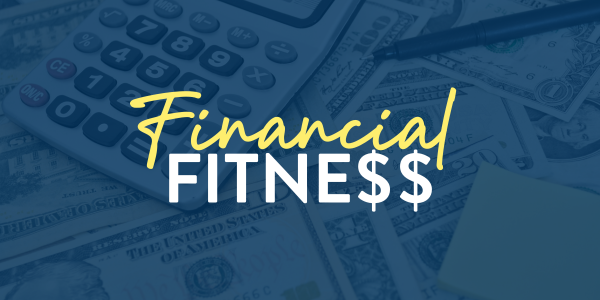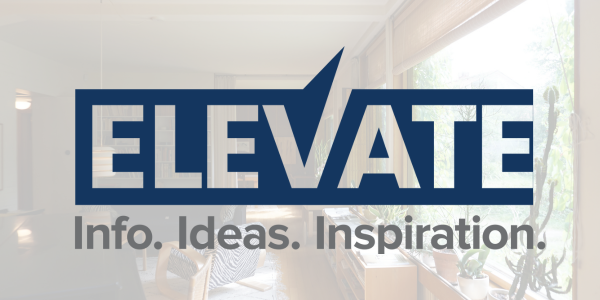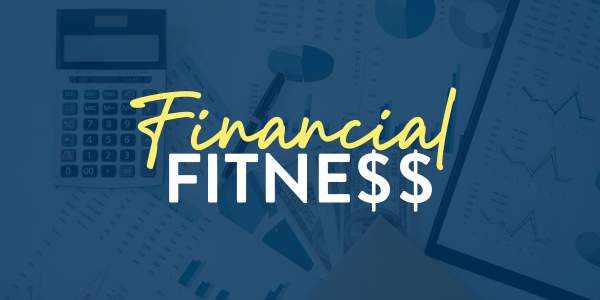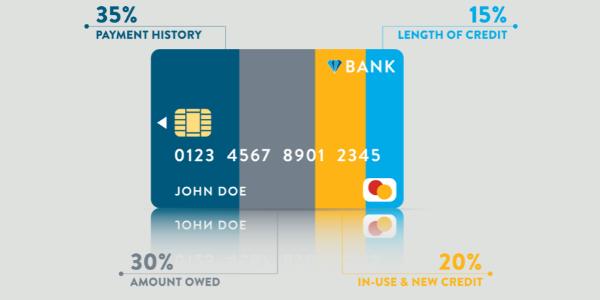
Many consumers are already feeling the stress of possible tariff-related price hikes, even though inflation has actually cooled and interest rates are seeing less volatility. However, many Americans are being proactive with their budgets in a variety of ways. For example, more consumers plan to dodge tariff pricing by purchasing locally-made goods and switching from retail stores to eBay and similar markets.

Home Financing
What Might Happen to Rates This Month?
It's the question some of us have been asking for months, or even years...where are mortgage rates headed? Even the experts who have been through other periods of volatility are hard-pressed to make any predictions.
However, there are certain economic factors that tend to push rates up or down, or keep them at the same level. Here are some market movements to watch for.
A cooling economy could bring rates down. Consumer behavior already suggests this cooling may be underway, as less spending on goods and services is going on. This could stall economic growth, which potentially leads to lower rates to encourage spending.
A steady economy could hold rates steady. Factors to look for include inflation rates of around 2.8% to 3%, and moderate job growth. The Federal Reserve's recent decision to keep rates "as is" is another factor. This scenario will probably keep Treasury yields near 4.3 to 4.5%, resulting in mortgage rates remaining in the current range.
Market uncertainty may push rates up. This is because mortgage markets prefer security and certainty but aren't seeing either of these this month. This may cause rates to increase to offset potential risks.
A hot economy could heat up rates, too. If inflation climbs past the 3% mark, or if a monthly jobs report is stronger than expected, this would cause lenders to increase their rates. This is because Treasury yields would rise, too.
Since rate changes are still unclear, practical strategies are a better way to prepare for a home purchase or refinance. Contact your local APM loan advisor today so you can create a personal plan.
Source: cbsnews.com
Insurance
Your Home's Prepared for a Disaster. What About Your Business?
Even though some states are definitely more prone to natural disasters, almost any state can be hit with a flood, wildfire or tornado. For example, earthquakes aren't limited to California, as a 4.1 magnitude earthquake shook Eastern Tennessee recently. In addition, an active hurricane season for the second half of 2025 is expected, with three to six predicted to affect the U.S.
While you'll want to ensure your family's safety at home, you may not have considered disaster preparedness at work. This is especially important if you're the owner or manager of a business with in-house staff. Think about it: if you hear tornado sirens or a flash flood invades your building, what will you do?
You can prepare a new plan or review your existing one at the Ready Business website.
Be sure that your plan addresses some often-overlooked needs, such as these:
- Additional methods for charging your cell phones, such as external chargers.
- Identifying safe indoor areas within your premises for staff (and customers, if applicable) to gather in case of a weather event.
- Meeting and evacuation plans for your staff.
- If your business is computerized, ensure that your systems are protected or backed up in case of damage or a power outage.
In addition, it's a good idea to discuss your plans with neighboring businesses if possible. You may be able to help each other during a disaster. Your insurance agent will also be able to offer advice, especially for the types of weather-related disasters seen in your area.
Source: ready.gov
In the News
Consumers Recalibrate From 2020 to 2025
Financial services company Empower recently released a five-year study of consumer finances, highlighting our evolving spending habits for everything from mortgages to streaming services. Many of us have adjusted or "recalibrated" spending during this time.
Here are some of the main topics, including cost adjustments from 2020 to 2025.
Essentials took a bigger bite. Mortgage payments rose by 64% due to higher home prices, interest rates, and increased property taxes. Utility bills rose by 41%, fueled by more home offices, extreme weather and higher energy costs. And while insurance prices made headlines, these only rose by 38%.
Fun is worth it. Our travel budgets increased by 12% while monthly entertainment spending went up by 28%. Those of us staying home saw an 84% increase in our online spending, including everything from streaming to AI services to virtual coaching.
Going digital is saving money. Since many of us have gone from traditional printed documents to electronic transmissions, spending on printing declined 62%. The costs of cable and satellite television dived 23% as more consumers dump prime time television for streaming services. And while our telephones became smarter, our average monthly spend decreased by 7%.
Looking good is worth it, too. Our spending on clothing and shoes climbed by 47% over the past few years. Visits to salons, spas and personal care saw a 14% increase in average monthly spends.
Source: empower.com
Credit and Consumer Finance
The Federal Rate's Unchanged. What About Consumer Rates?
Last week, the Federal Reserve announced it will leave interest rates unchanged. Reasons for this included higher prices caused by tariff policies and weakening economic growth.
While this means there isn't immediate relief from high borrowing costs, many are wondering how the Fed's decision may affect them.
Many credit cards have a variable rate with a direct connection to the Federal rate. This means average rates are stuck at around 21% (some lower, some higher). At the same time, higher prices are contributing to higher levels of credit card debt.
Mortgage rates aren't connected to Federal rates, as they're largely tied to 10-year Treasury yields and the economy. As a result, uncertainty over tariffs and worries about a recession are dragging those rates down, but not by much.
Auto loan rates haven't followed mortgage rates and have increased slightly since the end of 2024. However, the current 25% tariffs on imported vehicles may make them less affordable in the near future.
Savings accounts are some of the few winners. While high-yield savings and CDs may not be paying quite as much as last year, they're still above the current inflation rate. Financial planners are encouraging clients to lock in rates for their medium- and long-term savings.
Source: cnbc.com
Did You Know?
Consumers Take to Tariff-Avoidant Shopping Strategies
While news of international tariffs has caused consumer sentiment to fall, this doesn't mean that buying non-essential goods will grind to a halt. Instead, there are several different plans in place for this year, according to a recent survey carried out by Gartner, Inc.
- Over 40% of consumers surveyed in March 2025 said that they'll probably buy more American-made products this year.
- Around the same number have decided to postpone major purchases for the time being. This number is expected to rise to around 60% by the third quarter of this year.
- Many consumers will begin shopping, or increase their purchases, on peer-to-peer marketplaces like eBay, Etsy, Airbnb and TheRealReal.
Businesses may also be interested in survey respondents' opinions of brands and political issues.
- Most (68%) prefer that business brands be neutral instead of publicizing their stands on social and political issues.
- Almost as many say that they lose trust in a brand when it reverses course on an issue.
- Over 30% said that they have already boycotted a business if they disagreed with their stand on a political issue.
Source: businesswire.com







